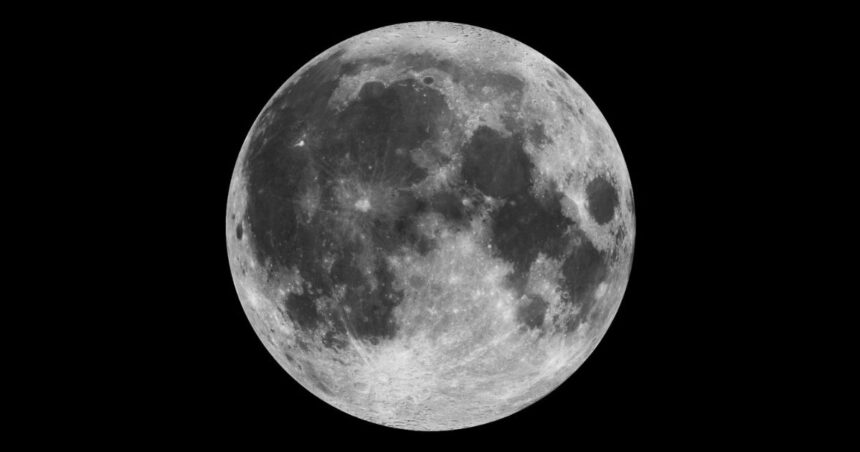A recent study has revealed a surprising connection between the Moon and Earth during the COVID-19 lockdown. Scientists found that the Moon’s temperature dipped due to reduced human activity on Earth. This discovery shows how closely linked our planet is with its celestial neighbor.
During the global lockdown in 2020, human activities came to a halt. Factories stopped, cars stayed parked, and planes were grounded. This led to a significant drop in pollution and greenhouse gas emissions. Scientists from the Physical Research Laboratory (PRL) in India decided to study how these changes affected the Moon.
They used data from NASA’s Lunar Reconnaissance Orbiter. This spacecraft has been orbiting the Moon since 2009, collecting valuable information. The researchers focused on the Moon’s nighttime temperatures. They compared data from six different locations on the Moon’s surface between 2017 and 2023.
The results were astonishing. During the shutdown, the Moon’s nighttime temperature decreased by 8 to 10 Kelvin. This was a significant drop compared to other years. The study was published in the Monthly Notices of the Royal Astronomical Society: Letters.
But how did reduced human activity on Earth affect the Moon? The answer lies in Earth’s atmosphere. Normally, human activities release a lot of greenhouse gases and aerosols. These particles trap heat in the atmosphere, which is then radiated back into space. During the lockdown, fewer particles were released, leading to less heat being trapped and re-emitted. This change in Earth’s radiation affected the Moon’s surface temperature.
Dr. K Durga Prasad and Dr. G Ambily led the research team. They explained that the Moon’s temperature drop was most noticeable during April and May 2020. This was the peak of the global lockdown. The lowest temperature recorded on the Moon during this period was 96.2 Kelvin. In comparison, the highest of the lowest temperatures recorded in other years was 143.8 Kelvin.
The study highlights the interconnectedness of Earth and the Moon. It shows that changes on our planet can have far-reaching effects. As human activities resumed after the lockdown, the Moon’s temperatures began to rise again. This suggests that our actions on Earth can influence environments beyond our planet.
Anil Bharadwaj, the director of PRL, emphasized the importance of this study. He said it offers a unique opportunity to understand how human activities impact the Moon. The findings also provide a fresh perspective on the broader cosmic effects of global human activity.
The researchers believe that more data is needed to fully understand the Earth-Moon dynamic. Future lunar observatories could play a crucial role in this. They could help scientists study how human actions influence the cosmos. This research could also help us better understand Earth’s climate and environmental shifts.
The study’s findings are a reminder of the delicate balance in our solar system. They show that even small changes on Earth can have significant effects on the Moon. This discovery opens up new possibilities for studying the interconnectedness of celestial bodies.
The COVID-19 lockdown had an unexpected impact on the Moon. The Moon’s evening temperature significantly decreased as a result of less human activity on Earth. This study highlights the close relationship between our planet and its celestial neighbor. It also underscores the importance of understanding how our actions affect the broader cosmos.
As we continue to explore space, studies like this will be crucial. They will help us understand the complex interactions between Earth and other celestial bodies. This knowledge will be essential for future space missions and for protecting our planet.
So, the next time you look up at the Moon, remember that our actions on Earth can reach far beyond our atmosphere. The Moon’s temperature dip during the lockdown is a testament to the interconnectedness of our universe. It shows that we are all part of a larger cosmic web, where every action has a ripple effect.
Editor’s Recommendations
- A Star-Studded Rosette Nebula Lights Up the Night Sky
- Shocking Discovery on Pluto’s Moon Charon: Carbon Dioxide and Hydrogen Peroxide Found
- Annular Solar Eclipse on Oct. 2, Witness the Sky’s Fiery Ring at Breakneck Speed
- Once-in-a-Lifetime Event: Corona Borealis Constellation Shine Brighter as Nova Explosion





